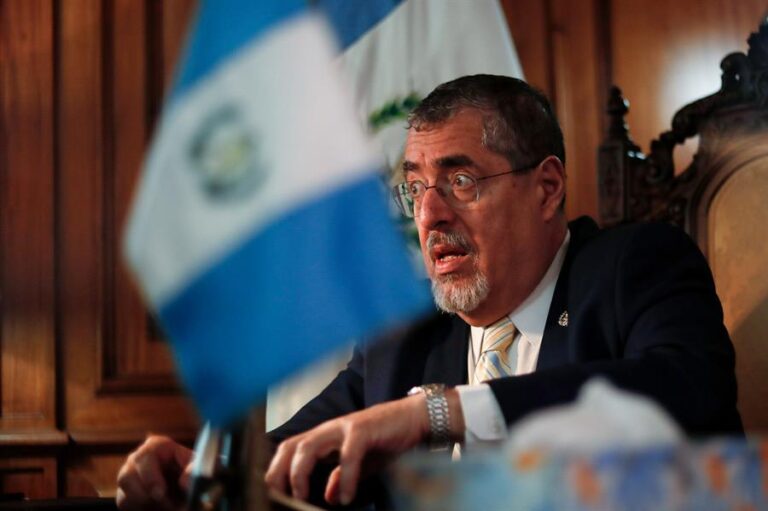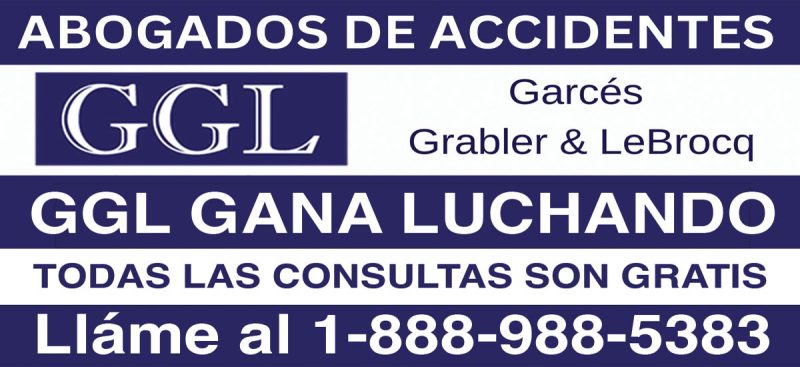
Guatemala had “Corrupt Governments”
By Manuel Fuentes
Guatemala City, Jan 26 (EFE).-
“Guatemala has not had conservative governments, but corrupt governments,” President Bernardo Arévalo, the first progressive head of state of the Central American country since the restoration of democracy in 1986, said in an interview with EFE.
Arévalo believes that the most pressing task is to fight against the legacy of his predecessors.
“To call them conservatives is to do them a favor. We did not have conservative governments, we had corrupt governments that masqueraded as ideological,” adds the new Guatemalan president, who took office twelve days ago following a turbulent five-month transition that nearly led to a coup d’état.
The international community’s support helped counterbalance the persecution against him and his party by some of the country’s political, judicial, and business elites.
Arévalo’s party, the Seed Movement, was born in 2015 from the anti-corruption protests that led to the resignation of President Otto Pérez Molina, who was later sentenced to 16 years in prison and is currently out on bail.
César Bernardo Arévalo de León, his full legal name, is a sociologist and career diplomat who was born in Uruguay in 1958 during his family’s exile.
He has been in power for twelve days and one of his first decisions was to recover the emblematic presidential office of his father, Juan José Arévalo (1945-1951), Guatemala’s first democratically elected president and architect of the “Revolution of 1944,” a period of significant social and political changes in the country.

Democracy and social justice
“My father was a true believer in democracy and the struggle for social justice. These are two central features of my administration,” Arévalo said.
In contrast, the purpose of his predecessors “was not to manage public affairs, but simply to get their hands on the public treasury.”
Arévalo calculates that corruption has cost Guatemala 40% of its annual budget, which in 2023 amounted to 115.44 billion quetzales (about $14.76 billion).
“The best illustration of this, is the government that has just ended, which left corruption scandals that are absolutely unbelievable,” he points out, referring to the administration of Alejandro Giammattei (2020-2024), who currently enjoys immunity from prosecution due to his status as a member of the Central American Parliament.
In fact, on Friday, Arévalo annulled a governmental agreement by which his predecessor guaranteed that members of his inner circle would be provided with security guards and vehicles even after leaving office on Jan. 14.
Arévalo, instead, argues that “security should be at the service of all citizens and not just a few.”
The new president is passionate about the problem (he uses the word “corruption” about one time per minute on average), but in addition to “fighting for transparency in public administration,” the central pillars of his presidency will also comprise “restoring democratic institutions” and “solving issues with development,” as, according to the World Bank, 55.2% of Guatemala’s population lives in poverty.
“The most urgent matter is the fight against corruption, but the most important matter is the fight for the well-being of the people,” he emphasizes.
Arévalo said that it is necessary to “rebuild democratic institutions, not to use them as an excuse to usurp power and generate impunity in the face of corruption and engage in political persecution; which has been the case in previous governments.”
Since June 25, when against all odds he made it to the second round of the presidential election, Arévalo has been the target of Attorney General Consuelo Porras.
Harassment by the Attorney General
Porras has led an operation of persecution and destabilization against Arévalo and the Seed Movement that has been described as a “coup attempt” by several international actors, from Joe Biden’s administration to the European Parliament and the European Commission, as well as the Organization of American States and most of the governments of the region.
Before assuming the presidency, Arévalo promised to demand the resignation of the attorney general. However, he is more cautious with his words now, although he remains determined that “the Public Prosecutor’s Office stops its harassment of democratic institutions and commits itself to operating in accordance with democratic principles.”
Ensuring political stability and avoiding attempts to undermine democracy are two other important challenges facing his presidency, in which he will have to deal with a parliament in which his party holds only 23 of the 160 seats.
For this reason, the new Guatemalan president, whose office was found to contain microphones and other eavesdropping devices, insists that “governance must involve actors who come from civil society and are prepared to defend democratic institutions,” such as the indigenous movement, peasant communities and the private sector.
Overcoming exclusion
“The first thing to do,” Arévalo says, “is to activate the institutions of the state so that they bring their services to areas where there is absolute marginalization. We had processes of exclusionary development that marginalized many people. We have operated on the basis of racism.”
The president is aware that there is no magic formula that will allow him to guarantee economic growth and to improve the living conditions of Guatemalans during his four-year term, but he is clear that the way forward is to focus the government’s plans on the most historically abandoned areas of the country, to implement mechanisms to strengthen small and medium-sized enterprises, and to attract international capital.
“We have made an explicit invitation to bring in foreign investment. The reason that not much investment has come to Guatemala is precisely because there was no legal security, because the government and the courts were in the hands of corrupt people,” he admits.
“Recent governments have made our country a pariah in the international arena,” laments the Guatemalan president, who served as vice-minister of foreign affairs (1994-1995) and ambassador to Spain (1995-1996) during the administration of Ramiro de León Carpio.
“Guatemala,” he stresses, “needs the support of strong multilateral system, good relations with the international community and collaboration with the democracies of the world to create a scenario of respect for the principles of international law, which is the best guarantee for small countries like ours”. EFE
mf/ics/mcd


